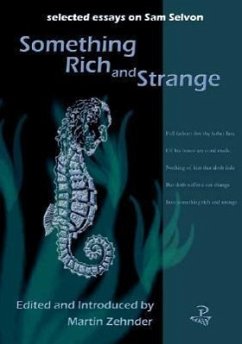Critical work on Samuel Selvon has passed through several phases. Initially there was a tendency to treat it as charming, humorous, folksy, naïve and lacking in structure. Then criticism focused on his innovations in the language of narrative and Maureen Warner-Lewis's essay is one of the most brilliant in this framework, demonstrating just how sophisticated and artful was Selvon's play with language register. Another tendency was to treat Selvon's work as expressing a West Indianness that subsumed his own Indo-Caribbean origins. Harold Barrett's essay shows by close analysis that Selvon's treatment of Indianness always suggests the necessity for it to become part of the Caribbean whole, but without in any sense becoming subsumed. Major cultural theorists such as Kamau Brathwaite and Antonio Benitez-Rojo have begun to delineate a specifically Caribbean aesthetics, and the essay by John Thieme shows how central Selvon's work is to this project in its use of the archetype of carnival. More recent postmodernist treatments of Selvon have seized on the ironic play with intertextuality in his later novels in a way which loses sight of underlying patterns of meaning and social commitment. John Stephen Martin's essay is a salutary restatement of Selvon's humanist philosophy. In short, the essays in this collection both advance the depth of appreciation and understanding of Selvon's fiction and present an admirably balanced range of approaches towards it. Martin Zehnder lectures at the University of Zurich, Switzerland.
Hinweis: Dieser Artikel kann nur an eine deutsche Lieferadresse ausgeliefert werden.
Hinweis: Dieser Artikel kann nur an eine deutsche Lieferadresse ausgeliefert werden.








